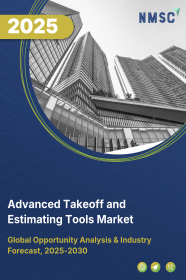
Property Management Market by Component (Solutions, and Services), by Deployment Mode (Cloud‑based, and On‑premises), by Property Type (Residential, Commercial, Industrial, and Specialized Assets), by Application (Rent & Tenant Operations, Maintenance & Facility Management, Portfolio Optimization & Analytics, and Sustainability & Compliance Management), by End‑user (Individual & Institutional Property Owners, and Others) – Global Opportunity Analysis and Industry Forecast 2024-2030.
Market Definition
The Property Management Market size was valued at USD 22.30 billion in 2023 and is predicted to reach USD 39.32 billion by 2030 with a CAGR of 8.4% from 2024-2030.
Property management refers to the administration, operation, and oversight of real estate on behalf of property owners. It involves maintaining, controlling, and maximizing the value of real property. Property managers act as intermediaries between property owners and tenants, ensuring that the property is well-maintained, occupied, and generating income. The management oversees operations and manages tasks such as tenant screening, rent collection, and maintenance, relieving property owners of time-consuming duties. The management helps to enhance property value through strategic marketing, proper maintenance, and adherence to legal requirements, ultimately maximizing returns on investment.
Market Dynamics and Trends
The growth of the global property management market is propelled by a rising demand for property management software worldwide. This software plays a crucial role in streamlining operations for property managers, offering features such as automated rent collection processes and electronic payment tracking.
These functionalities not only improve efficiency but also contribute to enhancing the overall experience for tenants. Additionally, property management software enables effective management of larger portfolios of properties, enabling managers to handle multiple properties with ease. Moreover, by offering advanced functionalities and improved services, property management software helps attract a broader client base, further driving the growth of the global property management market.
For instance, RentRedi, a leading provider of property management software, introduced new customization features to its cloud-based platform in July 2023. These enhancements were designed to streamline the rental process for both landlords and renters.
By offering customizable pre-qualification and rental application processes, the software empowers landlords and property managers to identify the most qualified tenants efficiently. This trend reflects a broader industry shift towards leveraging technology to enhance the management and rental processes, ultimately driving the growth of the property management market on a global scale.
Also, the increasing integration of AI tools within property management software is boosting the growth of the property management market globally. This trend is reshaping the industry landscape by automating tasks such as lease management and tenant screening, while also enhancing customer service offerings. AI-powered virtual assistants are revolutionizing property management operations by improving tenant satisfaction and streamlining management tasks.
For instance, in May 2023, Jurny, a hospitality tech company, launched a free property management software (PMS) and operating system called JurnyOS 2.0, which is powered by GPT-4, an advanced artificial intelligence. This sophisticated software automates tasks, enhance customer service, and handle full conversations with guests. This development caters to the evolving needs of property managers seeking enhanced guest experiences and operational efficiencies, driving market growth.
However, resistance to adopt new technologies and software solutions, particularly among smaller or traditional real estate sectors, acts as a restraint in the property management sector. This resistance arises from concerns related to the high initial costs of implementing new technologies, or a lack of awareness regarding the advantages provided by modern property management tools.
On the contrary, integration of data analytics in property management is expected to create future opportunities for property managers to optimize their operations and maximize profitability. By analyzing data on tenant behavior, maintenance requirements and financial performance, property managers will be able to make informed decisions, thereby enhancing property performance comprehensively.
Market Segmentations and Scope of the Study
The property management market is segmented on the basis of deployment mode, solutions, services, application, end-user, and region. On the basis of deployment mode, the market is segmented into cloud and on-premises. On the basis of solutions, the market is categorized into facility management, project management, security and surveillance management, CRM software, and other solutions. On the basis of services, the market is divided into professional services and managed services. On the basis of application, the market is classified into residential and commercial. The commercial segment is further classified into retail, government, construction, real estate, and others. On the basis of end-users, the market is divided into property managers, housing associations, real estate agents, and others. The regional breakdown includes regions such as North America, Europe, Asia-Pacific, and the Rest of the World (RoW).
Geographical Analysis
North America holds a dominant share in the property management market and is projected to continue its leadership during the forecast period. This growth is fueled by increased housing expenditure in the U.S., prompting individuals to turn to professional property management services for efficient handling of their real estate assets.
This trend is underscored by statistics from the U.S. Bureau of Labor, indicating a steady rise in housing expenditures, reaching 7.4 percent in 2022 following a 5.6 percent increase in 2021. Such sustained growth in housing expenditure drives continued demand for property management services, highlighting North America's leadership in this sector.
Also, the growth of the property management market in North America is significantly driven by population growth, particularly in the United States. As the population expands, there is a corresponding increase in demand for housing and commercial spaces.
This surge in demand necessitates the involvement of property management companies to oversee and maintain these properties effectively. According to data provided by the United States Census Bureau, the U.S. population gained more than 1.6 million people in 2023 from the previous year, reporting a significant population increase by 0.5% to 334.9 million.
This demographic trend underscores the ongoing demand for property management services in North America, as the market continues to expand to meet the evolving needs of a growing population. On the other hand, in the Asia-Pacific region, the property management market is steadily growing, fueled by the rising disposable income in developing nations such as India and Indonesia.
This increase in disposable income empowers individuals to venture into real estate investments, driving up the demand for rental properties. The Government of India estimated a Gross National Disposable Income for the year 2023 as USD 3,564,708 million, reflecting an increase from USD 3,307,714 million in 2022. This surge in disposable income demonstrates the demand for property management services as individuals with greater financial resources seek to capitalize on real estate opportunities.
Also, the growth of Foreign Direct Investment (FDI) in Asian countries is driving demand for property management services in the region. As more foreign investors pour capital into Asia, property managers are increasingly vital in addressing the legal, cultural, and regulatory complexities that arise.
These managers play a crucial role in facilitating smooth operations among property investors, ensuring compliance with local laws, and providing efficient management solutions. According to the Japanese Ministry of Finance, Foreign Direct Investment in Japan surged by USD 23,822 million in January 2024. The influx of FDI underscores the importance of property management in Asia Pacific.
Competitive Landscape
Various market players operating in the property management market include CBRE Group, Inc., Jones Lang LaSalle Incorporated (JLL), Cushman And Wakefield Plc, Colliers International Group Inc., Brookfield Properties (Brookfield Asset Management), Savills Plc, Greystar Real Estate Partners, Newmark Group, Inc., Hines Interests Limited Partnership, Yardi Systems, Inc., RealPage, Inc., MRI Software LLC, AppFolio, Inc., ResMan (Collabware Inc.), Entrata Inc.. These market players continue to adopt various market development strategies including launches, collaborations, and others to maintain their dominance in the property management market.
For instance, in August 2025, CBRE Group, Inc., Upgraded its 2025 Asia-Pacific investment outlook from 10% to a projected 10–15% annual growth, citing robust investor activity and confidence across major regional markets.
Additionally, in September 2024, Jones Lang LaSalle Incorporated (JLL), JLL announced a strategic realignment effective January 1, 2025, placing all building operations, including property management, under a single global structure. Property Management was consolidated under the Work Dynamics division, while Markets Advisory was renamed to Leasing Advisory.
Key Benefits
-
The report provides quantitative analysis and estimations of the property management market from 2024 to 2030, which assists in identifying the prevailing market opportunities.
-
The study comprises a deep-dive analysis of the property management market including the current and future trends to depict prevalent investment pockets in the market.
-
Information related to key drivers, restraints, and opportunities and their impact on the property management market is provided in the report.
-
Competitive analysis of the players, along with their market share is provided in the report.
-
SWOT analysis and Porters Five Forces model is elaborated in the study.
-
Value chain analysis in the market study provides a clear picture of roles of stakeholders
Key Market Segments
By Component
-
Solutions
-
Lease & Tenant Management
-
Integrated Workplace Solutions
-
Portfolio Analytics & Reporting
-
Accounting & Financial Management
-
Sustainability & Compliance Tools
-
Industrial Asset Optimization Tools
-
-
Services
-
Core Property Management Services
-
Rent & Lease Administration
-
Tenant Sourcing, Screening & Relations
-
-
Maintenance & Facility Management Services
-
Preventive/reactive Maintenance
-
Vendor & Contract Management
-
-
Consulting & Advisory
-
Portfolio Optimization & Repositioning
-
Strategic Planning & Cost‑benefit Analysis
-
-
Implementation, Support & Training
-
Software Deployment & Integration
-
Helpdesk, Upgrades & User Training
-
-
By Deployment Mode
-
Cloud‑based
-
On‑premises
By Property Type
-
Residential
-
Single‑family Homes
-
Multi‑family & Condominiums
-
Vacation & Student Rentals
-
-
Commercial
-
Office & Coworking Spaces
-
Retail & Hospitality
-
-
Industrial
-
Warehouses & Distribution Centers
-
Manufacturing & Logistics Facilities
-
-
Specialized Assets
-
Mixed-Use Developments
-
Government & Military Properties
-
Senior Living & Healthcare Facilities
-
Educational & Institutional Campuses
-
By Application
-
Rent & Tenant Operations
-
Maintenance & Facility Management
-
Portfolio Optimization & Analytics
-
Sustainability & Compliance Management
By End‑user
-
Individual & Institutional Property Owners
-
Real‑estate Investors & REITs
-
Tenants & Occupiers
-
Government & Public Sector Agencies
-
Third‑party Facility‑management Firms
By Region
-
North America
-
The U.S.
-
Canada
-
Mexico
-
-
Europe
-
The UK
-
Germany
-
France
-
Italy
-
Spain
-
Denmark
-
Netherlands
-
Finland
-
Sweden
-
Norway
-
Russia
-
Rest of Europe
-
-
Asia-Pacific
-
China
-
Japan
-
India
-
South Korea
-
Australia
-
Indonesia
-
Singapore
-
Taiwan
-
Thailand
-
Rest of Asia-Pacific
-
-
RoW
-
Latin America
-
Middle East
-
Africa
-
KEY PLAYERS
-
CBRE GROUP, INC.
-
Jones Lang LaSalle Incorporated (JLL)
-
Cushman And Wakefield Plc
-
Colliers International Group Inc.
-
Brookfield Properties (Brookfield Asset Management)
-
Savills Plc
-
Greystar Real Estate Partners
-
Newmark Group, Inc.
-
Hines Interests Limited Partnership
-
Yardi Systems, Inc.
-
RealPage, Inc.
-
MRI Software LLC
-
AppFolio, Inc.
-
ResMan (Collabware Inc.)
-
Entrata, Inc.
REPORT SCOPE AND SEGMENTATION:
|
Parameters |
Details |
|
Market Size in 2023 |
USD 22.30 Billion |
|
Revenue Forecast in 2030 |
USD 39.32 Billion |
|
Growth Rate |
CAGR of 8.4% from 2024 to 2030 |
|
Analysis Period |
2023–2030 |
|
Base Year Considered |
2023 |
|
Forecast Period |
2024–2030 |
|
Market Size Estimation |
Billion (USD) |
|
Growth Factors |
|
|
Countries Covered |
28 |
|
Companies Profiled |
10 |
|
Market Share |
Available for 10 companies |
|
Customization Scope |
Free customization (equivalent up to 80 working hours of analysts) after purchase. Addition or alteration to country, regional, and segment scope. |
|
Pricing and Purchase Options |
Avail customized purchase options to meet your exact research needs. |

















 Speak to Our Analyst
Speak to Our Analyst

























